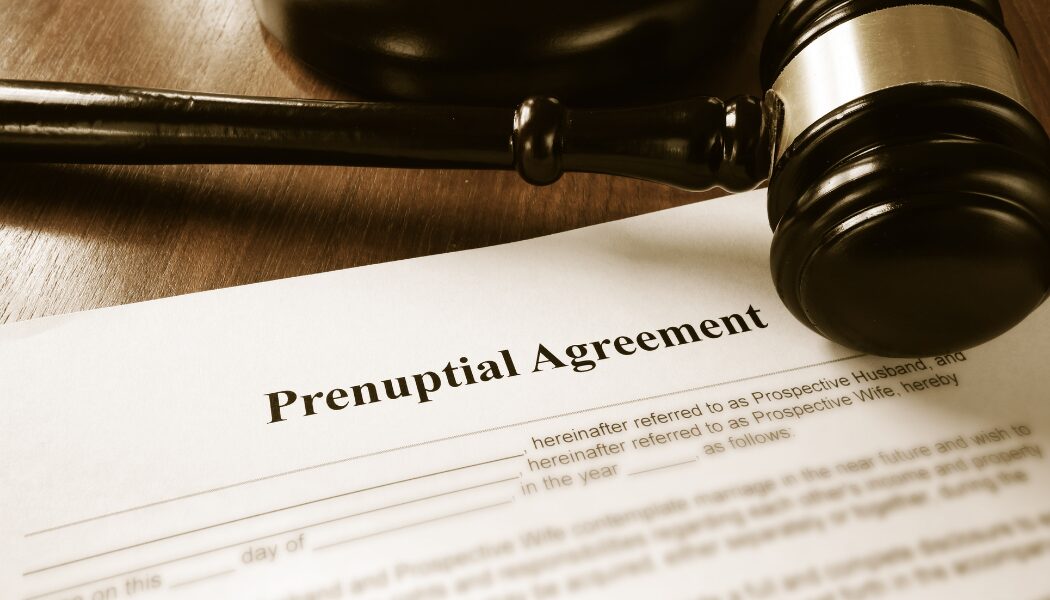
Valentine’s Day is traditionally a time to celebrate love, romance, and commitment, but it’s also an ideal time for couples to have important conversations about their future together. One such conversation might involve a prenuptial agreement (prenup). While it may not be the most romantic topic, a prenuptial agreement can provide essential protection and clarity for both partners before they say “I do.”
If you’re considering getting married, understanding the benefits and importance of a prenuptial agreement can lead to greater peace of mind and avoid potential conflicts in the future. Here’s why a prenup might be an important step, and how it can contribute to a stronger, more transparent relationship.
What is a Prenuptial Agreement?
A prenuptial agreement is a legal contract entered into by a couple before marriage. It outlines the division of assets and responsibilities in the event of a divorce or separation. While traditionally used to protect assets in cases where one or both spouses have significant wealth, prenups can be customized to meet the unique needs and circumstances of any couple.
Why Should Couples Consider a Prenuptial Agreement?
- Clarifying Financial Expectations: One of the main reasons couples consider a prenup is to ensure transparency about finances. A prenup can establish how assets, income, debts, and property will be divided in the event of a divorce. It provides both parties with a clear understanding of what to expect and helps avoid surprises down the line.
- Protecting Individual Assets: For individuals who enter a marriage with significant assets, such as a business, property, or investments, a prenup can protect those assets from being divided in a divorce. This can be particularly important if one partner has considerable wealth or if either partner has children from a previous relationship.
- Debt Protection: Another benefit of a prenuptial agreement is protecting one spouse from assuming the other’s debt in case of a divorce. If one partner enters the marriage with substantial debts, a prenup can specify who is responsible for those debts should the marriage dissolve.
- Ensuring Fair Treatment in Case of Divorce: Divorce can be a messy and costly process. A prenup can outline clear terms for asset distribution, spousal support, and other financial matters, which can make the process smoother and prevent prolonged legal battles. It can also prevent emotional disputes about finances during what is already a stressful time.
- Protecting Family Heirlooms and Inheritances: Some couples may want to ensure that family heirlooms or inheritances stay within their respective families. A prenup can clarify the treatment of these items in the event of a divorce, safeguarding their sentimental and financial value.
- Providing a Sense of Security: Although it may sound counterintuitive, discussing a prenuptial agreement can actually strengthen a relationship. It provides both partners with a sense of security, knowing that their financial future has been clearly outlined and that both parties are committed to fairness.
Common Myths About Prenuptial Agreements
- Prenups are Only for the Wealthy: While prenuptial agreements are often associated with high-net-worth individuals, they can benefit any couple. Whether you have significant assets or just want to ensure clarity about financial matters, a prenup can provide protection for both parties.
- Prenups Mean You’re Expecting a Divorce: A prenuptial agreement is not an indication that you expect your marriage to end. Instead, it’s a way to ensure that, if things don’t work out, both parties are treated fairly. It’s about being prepared, just as you would be for any other part of your life that requires planning.
- Prenups Aren’t Legally Enforceable: When drafted properly by an experienced attorney, prenuptial agreements are enforceable in court. To ensure validity, it’s important that both parties voluntarily sign the agreement, and that full disclosure of assets and liabilities is made by both spouses.
How to Approach the Topic of a Prenuptial Agreement
Talking about a prenuptial agreement can feel awkward, but it’s essential for setting expectations early in the relationship. Here are some tips for approaching the conversation:
- Choose the Right Time: Valentine’s Day might be a good opportunity to discuss the idea of a prenup—especially if you’re already engaged. Keep in mind that this conversation should be done with respect and openness, so choose a calm, neutral time to talk about it.
- Be Honest and Transparent: Open communication is key. Discuss your individual financial situations and long-term goals. It’s important that both partners are honest about their assets, debts, and expectations to ensure a fair agreement.
- Consult an Attorney: A prenuptial agreement is a legal document, so it’s crucial to consult with a family law attorney who specializes in prenuptial agreements. They can ensure that the agreement is legally sound and addresses your unique needs.
Conclusion
A prenuptial agreement may not be the most romantic Valentine’s Day conversation, but it’s a practical and responsible way to protect both parties in a marriage. By clarifying financial expectations and addressing potential future challenges, a prenup helps establish trust, security, and transparency in the relationship.
If you’re considering a prenuptial agreement or have questions about how to approach the topic with your partner, consulting with an experienced attorney can provide the guidance you need. Ziemer Law, LLC is here to help you navigate these important discussions and ensure that your marriage begins on a strong, clear foundation.



